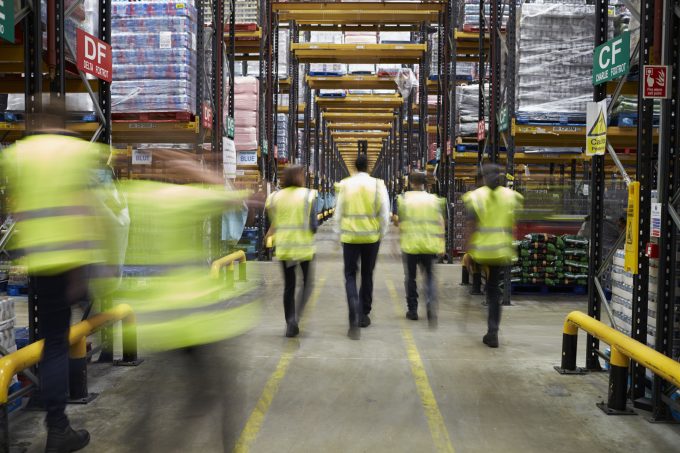Global airfreight volumes blooming as flower shipments take off
Global air cargo tonnages have taken off again after three consecutive weeks of subdued volumes, ...

The logistics sector could face employment challenges without clearer guidance on worker status, the FTA has warned, and it urged the government to act quickly to ensure a skilled workforce.
Matthew Taylor, chief executive of the Royal Society of Arts, Manufacturing and Commerce, has published his report on the future of labour in the UK, making six recommendations.
Among them was a new “dependent contractor” status: a worker with greater rights than those in the “gig economy”, but retaining flexibility.
The gig economy and zero-hour contracts are prevalent in logistics. The report notes: “Technology has facilitated new business models based around matching sellers and buyers of goods and services… The gig economy tends to refer to people using apps to sell their labour.
“The most commonly used examples are Uber and Deliveroo, but there are many and a growing number of platforms facilitating working in this way.”
To support workers who want autonomy over their jobs, but also labour rights, the report suggests a third legal category between staff and self-employed.
“Dependent contractors are the group most likely to suffer from unfair one-sided flexibility, and therefore we need to provide additional protections for this group and stronger incentives for firms to treat them fairly.”
But the report fails to sufficiently define and outline employer responsibilities, said the FTA.
“The proposed new ‘dependent contractor’ status would give those working in the gig economy greater rights, without taking away the flexibility that is so important for businesses,” said Sally Gilson, FTA’s head of skills campaigning.
“However, it’s important that this doesn’t confuse an already complicated job market further, and it is certain that clear guidance on any new worker status will be required.”
In a statement, the FTA added: “[Mr] Taylor himself should have defined the exact terms for self-employment status and FTA is calling on the government to provide clear advice on what being self-employed means.”
The report also addresses apprenticeship schemes and training in the ‘gig’ economy. It notes: “There is evidence to suggest that the number of individuals who have access to regular training opportunities is falling.
“Those opting for maximum flexibility may find that pay suffers as a result, with fewer opportunities for further development through training.
Ms Gilson said: “Skills development is a key area for logistics, as well as other vital parts of the British economy, and currently self-employed and agency workers are excluded from funded training. It is especially encouraging that the report throws the focus onto the apprenticeship levy and how it shuts out these workers at a time when so many sectors are suffering from skills shortages.
“We call on the government to take urgent action to implement changes recommended by Mr Taylor, to ensure that industry, and logistics in particular, can have access to the skilled workforce it needs to keep Britain’s trading partnerships, and economy as a whole, moving efficiently.”
Comment on this article